Southern rail: What's making commuters sick at heart?
- Published
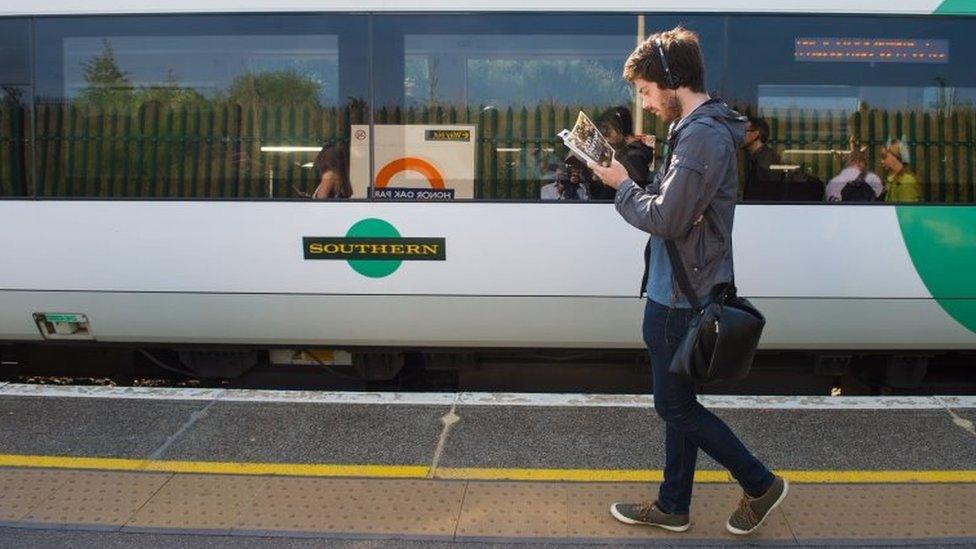
Customers of the UK's biggest rail operator have endured weeks of disruption, with managers blaming high levels of staff sickness. Operators of Southern rail services have now introduced a new timetable, cutting 341 daily journeys. What's going on?
It's one of the worst things a commuter can hear as they're about to begin their train journey. An announcement comes over the station loudspeaker that the service has been cancelled because of "unusually high levels of staff sickness" - or words to that effect.
Customers, paying several thousand pounds for an annual pass, wait to board the next available train, eventually cramming themselves into carriages in the hope that this one will get to their destination.
That scenario has occurred a lot recently on services run by the UK's largest operator - Govia Thameslink Railway (GTR), which has the franchise for Southern, Thameslink, Gatwick Express and Great Northern.
The level of sickness among Southern's conductors has doubled, according to GTR, which says that it's up 40% among drivers. This comes as conductors on Southern who are in the RMT union hold a series of strikes over planned changes to their working role. Thameslink and Gatwick Express services do not have conductors, but GTR says there's a "knock-on effect" on their trains.
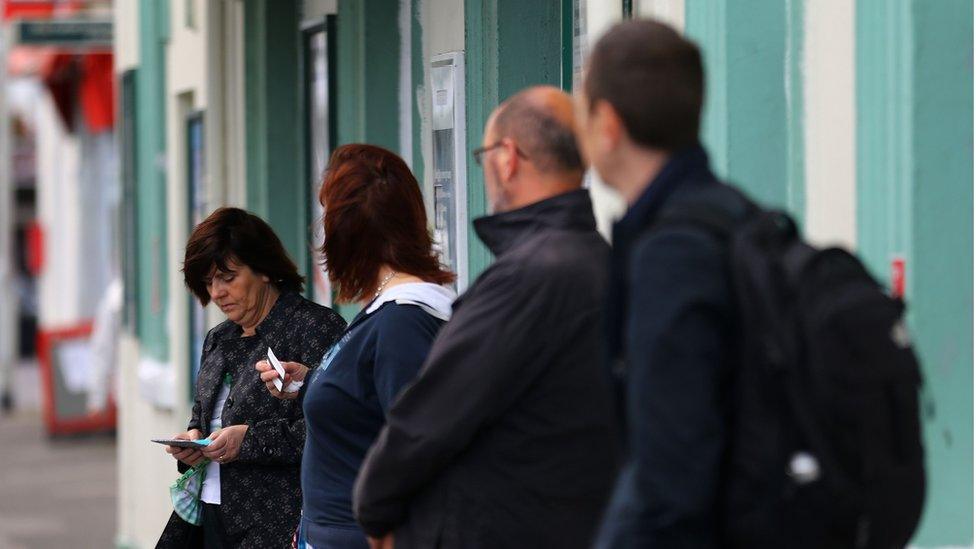
People wait to board a rail replacement bus

Annual season ticket costs to London Victoria from...
Hastings - £4,584
Eastbourne - £4,504
Worthing - £4,504
Chichester - £4,450
Brighton - £4,108
Haywards Heath - £3,844
East Croydon - £1,512
Source: National Rail Enquiries

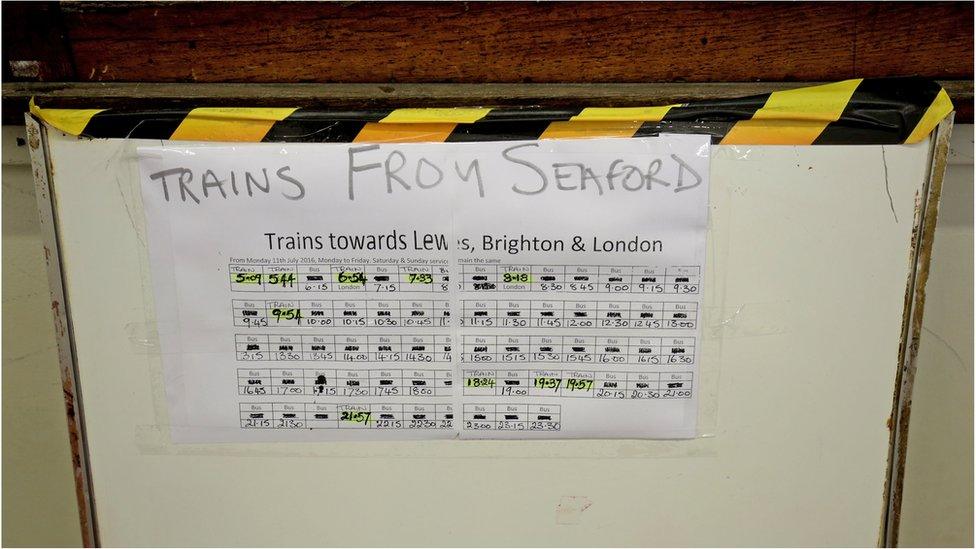
A notice board at Seaford Station in East Sussex as Southern Railways implemented a new timetable cutting over 300 trains from its normal schedule
Unhappy commuters have already held demonstrations at Brighton station and another demonstration was planned at London's Victoria station for later on Monday.
GTR's chief executive Charles Horton has been quoted in the Sunday Times saying the extra sick leave appears to be an "unofficial" addition to the official strike action. He added that this could not be proved, but the evidence looked "pretty compelling".
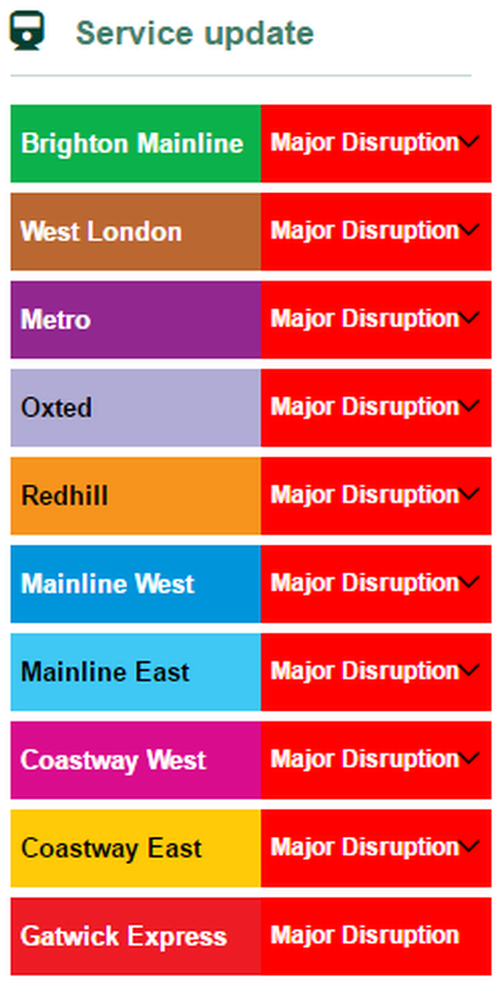
This was the situation on Southern's website a few weeks ago
However, the RMT denies this, arguing that the low level of staffing by GTR means there's no slack in the system when there are naturally occurring unusually high levels of staff sickness.
In fact, it has alleged that civil servants at the Department for Transport are "authorising train cancellations on GTR". The union says this "confirms suspicions that the chaos on the GTR franchise is being deliberately orchestrated as part of a policy to blame the staff and bulldoze through cuts to jobs and safety".
But the department says this is "nonsense". "Due to unjustified industrial action on the network, the operator has to consider timetable changes so as many services as possible can run," a spokesman says. "When this happens, operators are contractually obliged to inform us in advance, but these decisions are taken only when there is no other solution, and this does not amount to the government ordering cancellations."
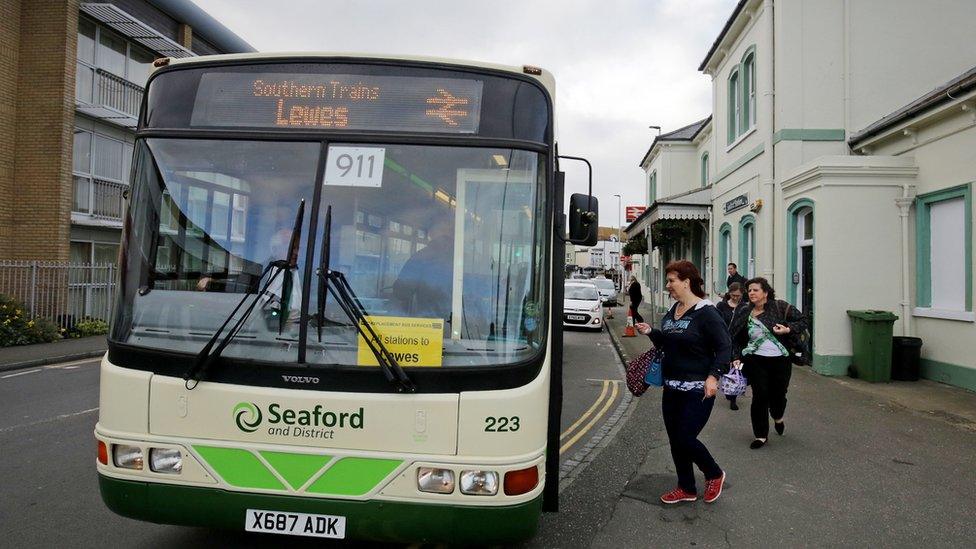
People board a rail replacement bus
With such contradictory views, commuters are left with a simple question: Who to believe?
"The meaning of short spells of sickness absence is very hard to establish because in most organisations they will not require certification," says John Kelly, professor of industrial relations at Birkbeck, University of London.
"Statistical peaks might suggest coordination by the union, officially or unofficially, but it is also possible that such sickness patterns could indicate high levels of stress linked to the proposed changes in working patterns and/or linked to the industrial action itself."
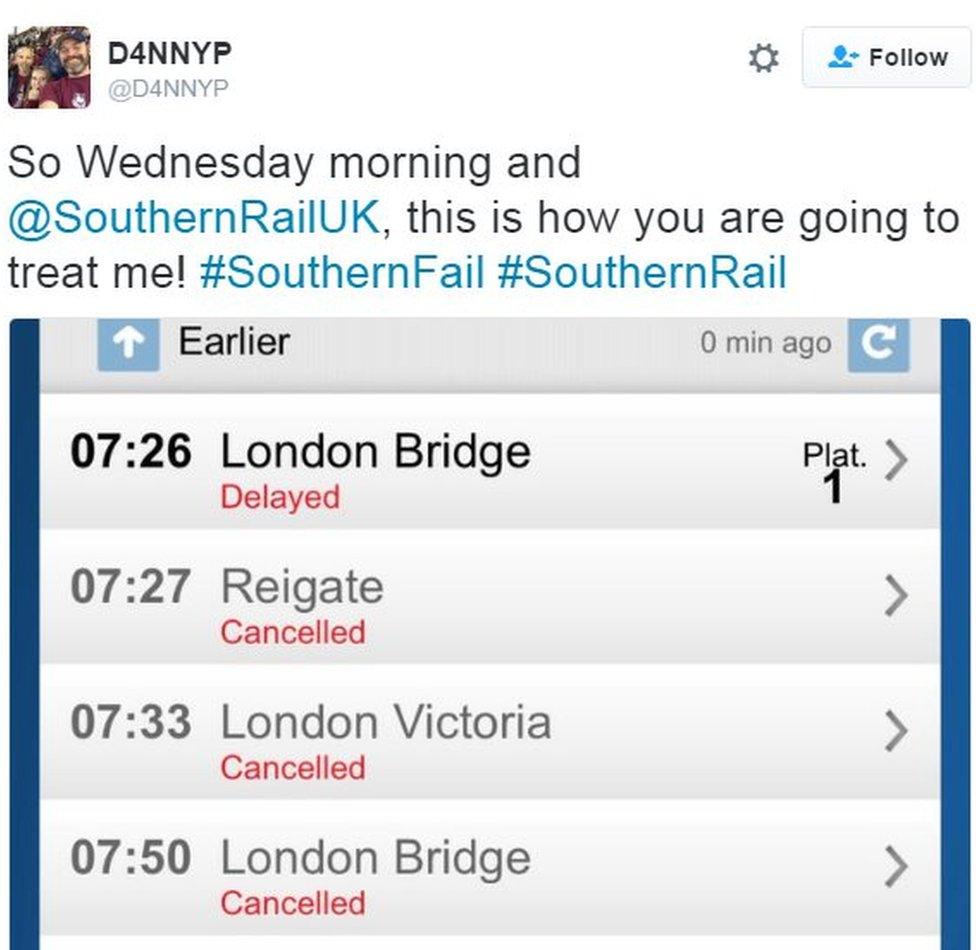
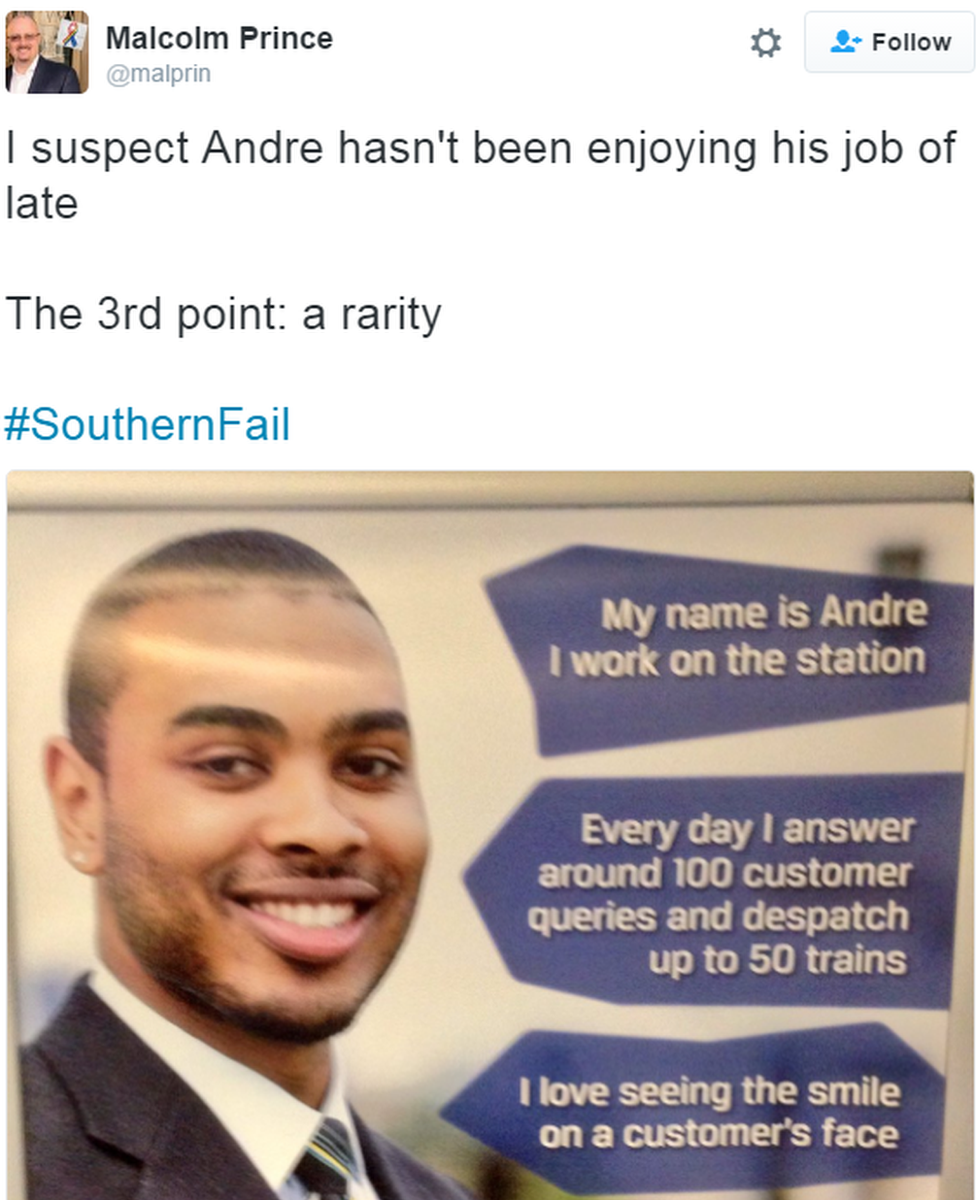
Staff absences are a delicate subject for legal reasons in England and Wales. If a union was found to have organised unofficial co-ordinated sick leave, this would be illegal. If an individual or group did it, this could result in dismissal.
On the opposite side, employers might be open to being sued for libel if they accuse individuals or small groups of doing this but can't prove it.
Mr Horton has not named any individuals - and has not even said co-ordinated sick leave is definitely happening. And there has been no public statement by any RMT member.
"I'd be fairly certain that if there are abnormal levels of sickness/absence, it would not be co-ordinated by the RMT itself," says Gregor Gall, professor of industrial relations at Bradford University, "for this would constitute unballoted and, thus, unlawful action."
The RMT, he adds, "has no history" of such behaviour, saying: "It is far more likely that RMT members are deciding off their own backs to respond to the company's intransigence by taking their own action."
This would either be "to put more pressure on the company to settle the dispute" or to show their general annoyance "as a result of the longstanding nature of this dispute".
Even before the recent strikes, GTR had problems with crew shortages. During the period from April 2013 to December last year, such absences accounted for 13.59% of its delays and cancellations - the highest rate in Britain.
The RMT is in dispute with GTR over the introduction of driver-only operation on Southern trains - meaning guards would no longer open and close doors but would still be on trains.
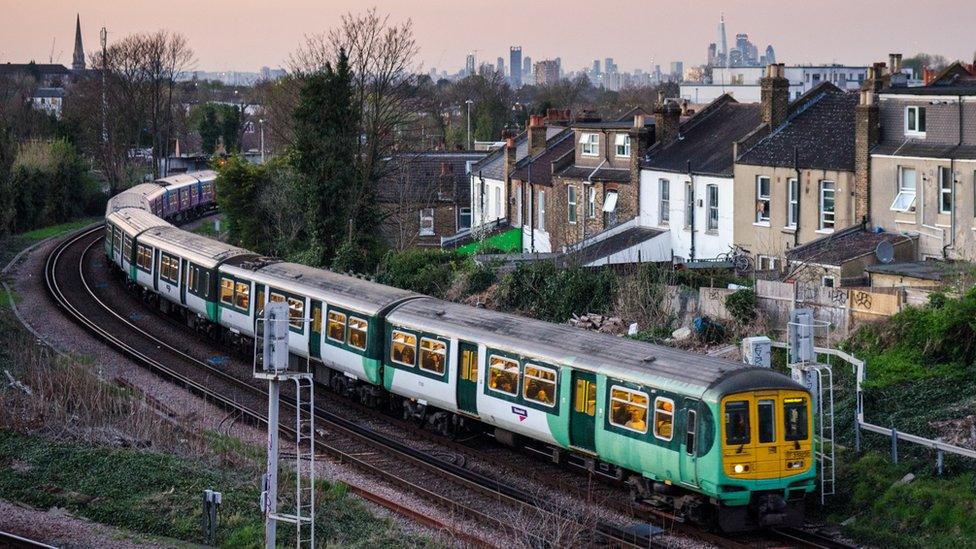
RMT general secretary Mick Cash has accused GTR's management of carrying out a "disgraceful campaign of misinformation", choosing to "declare war on its passengers and staff alike", and "trying to lump the blame" on to staff.
"Southern services continue to be affected by train crew availability," says a company spokesman. Sickness and a "reluctance by drivers at some locations to work overtime on top of their standard four-day working week is leaving us with a shortfall of train crew which is seriously compromising our ability to run a robust train service on a day-to-day-basis", it adds.
The company and the union held talks earlier this month, but the dispute goes on. "Our services remain available," says a spokeswoman for Acas, the organisation which oversees discussions between opposing sides in industrial disputes.
Whoever is responsible for the disruption - the company, the union or both - commuters whose quality of life is being affected simply want one thing - for it all to stop.